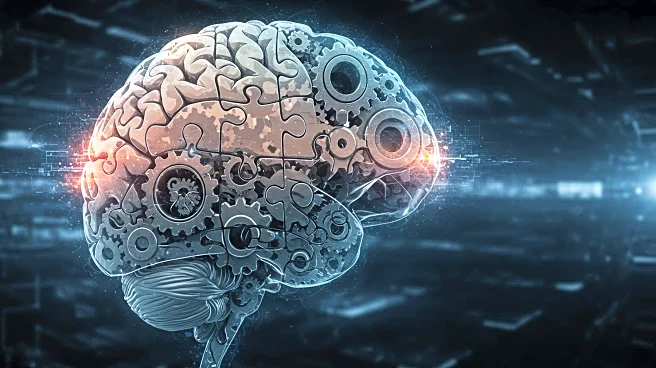What's Happening?
Researchers at the University of California, Berkeley have identified a new cognitive bias termed 'doubling-back aversion.' This bias leads individuals to avoid more efficient solutions if they require retracing previous steps. The study, published in Psychological Science, involved over 2,500 participants in various experiments, including virtual reality tasks and word recitation challenges. The findings indicate that people often choose less efficient paths to avoid feeling that their past efforts were wasted. This aversion is related to, but distinct from, other biases like the sunk cost fallacy, which involves sticking to a path due to prior investments of time or resources.
Why It's Important?
Understanding cognitive biases like the doubling-back aversion is crucial for improving decision-making processes in various fields, including business, psychology, and everyday life. This bias can lead to inefficiencies and suboptimal choices, impacting productivity and resource management. By recognizing and addressing such biases, individuals and organizations can enhance strategic planning and operational efficiency. The study's insights could inform interventions aimed at reducing the impact of cognitive biases, potentially leading to better outcomes in personal and professional settings.
What's Next?
Further research is needed to confirm the findings and explore the prevalence of the doubling-back aversion in different scenarios. Researchers may investigate how this bias affects decision-making in real-world contexts, such as travel planning or business strategy. Additionally, developing strategies to mitigate the effects of this bias could be a focus for future studies, potentially involving educational programs or decision-making tools designed to promote more efficient choices.
Beyond the Headlines
The identification of the doubling-back aversion highlights the complexity of human decision-making and the influence of psychological factors on behavior. This research contributes to a broader understanding of cognitive biases and their impact on society. It also raises questions about how cultural, social, and individual differences might affect the manifestation of such biases, offering a rich area for future exploration.











